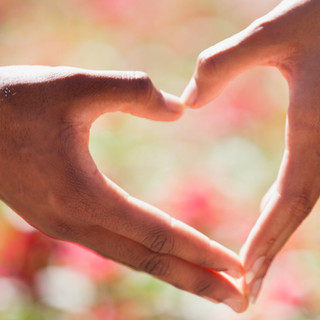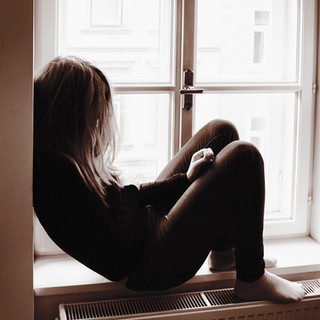The Importance of Self-Care in our Current Political/Social Climate
- rosajones4
- Sep 18, 2020
- 6 min read
Welcome back! In our last blog post, we wrapped up National Mental Health month by discussing ways in which you can reach out for help as well as a few simple tips for helping others. If you missed that blog, you can check it out here.
To start the month of August off right, I thought it would be important to address our current political and social climate. As you all know, this has been an extremely rough year with the pandemic and recent death of George Floyd. Not only has society been trying to keep us safe from the virus, but we are seeing an increase in activism, advocacy and social reform. During hard times like these, its important that we take care of ourselves whether we are on the front lines as BIPOC (Black, Indigenous, People of Color), Allies, or even individuals caught in the midst of it all trying to figure out our stance and how they can help.
While most of our blogs are themed for each month, this special edition blog is dedicated to those who are struggling with current events, news and outrage. In this blog, we’ll discuss some important statistics about mental health and BIPOC, self-care, as well as activism for those of you who want to help but just don’t know how. At the end, I’ll provide some resources for those of you who would like to continue your research.
Statistics
In regard to mental health overall, 1 in 5 adults experience mental illness and 1 in 25 adults experience severe mental illness. Scary right? It gets worse! When we look at mental health in diverse communities, research has found that:
Ethnic/racial minorities often bear a disproportionately high burden of disability resulting from mental disorders.
People who identify as being two or more races[bi-racial] (24.9%) are most likely to report any mental illness within the past year than any other race/ethnic group, followed by American Indian/Alaska Natives (22.7%), white (19%), and black (16.8%).
Although rates of depression are lower in blacks (24.6%) and Hispanics (19.6%) than in whites (34.7%), depression in blacks and Hispanics is likely to be more persistent.
Particularly for African Americans, only 1 in 3 African Americans who need mental health care receives it. Compared with the general population, African Americans are less likely to be offered either evidence-based medication, therapy, or psychotherapy. To make matters worse, black people with mental health conditions, particularly schizophrenia, bipolar disorders, and other psychoses are more likely to be incarcerated than people of other races.
Factors that increase mental health risk in social and political climates for African Americans include:
Racism, racial bias & discrimination (i.e. Racial profiling)
Institutional & systemic marginalization (i.e. Low SES, housing segregation, & mass incarceration)
Trauma (i.e. Individual, complex, collective, historical, & cultural)
Self-Care
Self-care can be defined as the practice of taking an active role in protecting one's own well-being and happiness, in particular during periods of stress. There are certain things we should all be doing to engage in self-care on a regular basis such as:
Physical (the body) - Consistent healthy eating, having a hygiene routine, exercising, attending regular check-ups with your PCP, participating in fun physical activities, practicing good sleep hygiene, and relaxation.
Psychological/Emotional (the mind) - Limiting distractions, taking time off when necessary, learn new things, expressing emotions (appropriately), laughing, venting, and speaking positive affirmations.
The Social/Professional (interactions with others) - Spending time with loved ones, meeting new people, asking for help when needed, having deep conversations, participating in group activities, and advocating for yourself.
Spiritual (the soul) - Enjoying nature, meditating, praying, recognizing the meaning of life, reflecting, self-actualizing, abiding by our moral compass, and immersing yourself in things that are important to you (appropriately).
Of course, there is plenty more you can do but these are just examples. Check out this amazing list of self-care activities if you’re having trouble thinking of ways you can indulge in self-care. If you’d like to gauge where your self-care is, take this fun quiz by Therapist Aid.
For our BIPOC, you may be experiencing something called Racial Battle Fatigue. This phenomenon is the result of a natural race-related stress response to negative mental/emotional conditions. These conditions emerge from constantly facing racially dismissive, demeaning, insensitive and/or hostile racial environments and individuals. Some of the ways you can combat this fatigue include:
Taking a mental health day
Practicing grounding and breathing techniques before, after and during stressful situations
Unplugging from social media, friends, peers, etc. who are toxic
Acknowledging your emotional reactions/responses rather than avoiding or pushing the away
Incorporating a piece of positivity into your daily routine
Being kind to yourself and congratulating yourself for surviving the day
In comparison, those of you who are allies for BIPOC may be experiencing your own fatigue. Allyship fatigue is the feeling of being overwhelmed and exhausted of the emotions that come with doing the work of being an ally. Many allies have expressed they feel they shouldn’t be having this exhaustion as they are not the ones who experience oppression and marginalization on a daily basis. It’s important to remember that as an ally, you “cannot pour from an empty cup.” What that means is that in order for you as an ally to be affective and cause change, you also have to be at your best mentally as well. Here are some self-are tips on how you can do that:
Maintain good boundaries and know when it’s appropriate for you to speak up/act
Recognize that change requires more than one person so you cannot do it all on your own
Choose your battles wisely and know when its time for you to also unplug
Do what’s comfortable and safe for you (i.e. signing a petition if you’re uncomfortable protesting)
Surround yourself with like-minded people
Do not engage in negative self-talk from people who belittle you for standing up for others.
Whether you’re an ally or a BIPOC, vicarious trauma is something that you may both experience, especially with videos constantly circulating around on social media of the violent deaths, police brutality and just plain mistreatment of others. It is defined as the emotional residue of exposure that one experiences from interacting with people as they hear/see other's trauma and become witnesses to the pain, fear, and terror that trauma survivors have endured. This type of trauma, although second-hand is still extremely serious so follow these steps if you believe you’ve been vicariously traumatized:
Recognize when it’s too much
Limit your exposure
Don't apologize for being affected
Seek support from other who can relate
Utilize healthy coping mechanisms
Talk about your symptoms with a professional
Freedom Support Services is open and accepting new clients for those of you who are interested. We offer individual, couple’s, and group counseling both in person at our Christiansburg location or via Telehealth. To schedule an intake appointment, call (540) 744-6162 for a free consultation, instant message us on Facebook, email us at contact@freedomsupportservices.com or fill out our new Request for Services form on our website.
Activism and Advocacy
If you’re interested in activism and advocacy during this type but you don’t know where to start, first check out this video on Uncomfortable Conversations with a Black Man. Emmanuel Acho creates a safe place on YouTube for “the uncomfortable conversations about race that many people have never been able to have.” He has a series of videos on different uncomfortable conversations regarding race that you can check out here. Next, follow these steps:
Understand others' reactions
Educate yourself on systems of oppression and marginalization
Check your PRIVILEGE
Simply ask what you can do to help
Recognize the difference between giving / opening up space and white knight syndrome
Call out injustice when you see it, even if it’s from loved ones
Fight the war, not the battle aka, don’t ever stop advocating for other’s human rights
To conclude, self-care during times like these is highly important. With the severity of our social/political climate, lack of access to resources and stigma surrounding mental health, make sure you’re doing what you can to take care of yourself and advocate for others if you so choose. If you’d like more information on the statistics or facts used in this blog, advocacy, mental health resources for BIPOC or simple self-care tips, check out the links:










Comments